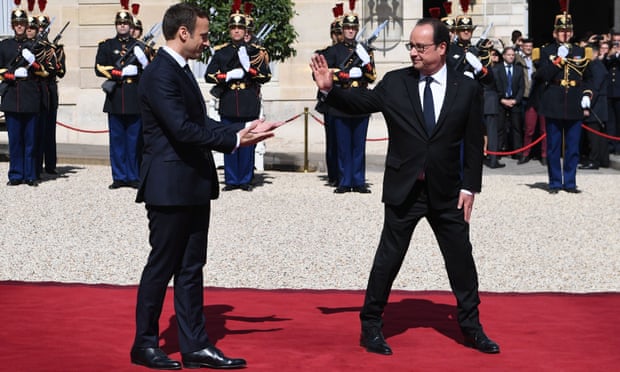Emmanuel Macron is expected to officially announce on Thursday the closure of the École Nationale d’Administration, the elite French finishing school for the country’s leaders where he studied.
Known as ENA, the grande école has been the hothouse for France’s top civil service and a pathway to power in the public and private sectors. Four French presidents, including Macron, have passed through its doors as have dozens of ministers and business leaders.
Founded by Gen Charles de Gaulle in October 1945 with the idea of breaking the upper-class hold over France’s higher echelons, ending nepotism and making the civil service more democratic, it has instead become a byword for an establishment elite that critics have accused it of encouraging groupthink.
The school, whose graduates are known as énarques, was originally located in Paris but moved to Strasbourg, though it keeps a campus in the capital.
While the number of students from upper-class families was 45% in the 1950s and 60s, this had risen to about 70% between 2005 and 2014, while those from working-class families fell to about 6%.
Macron’s decision to shut ENA was reportedly prompted by the gilets jaunes protest movement that began in 2018 and was sparked by a sense that the country’s leaders were out of touch with ordinary French people, especially those living outside the cities.
The text of a speech the president never delivered because it was postponed when Notre-Dame cathedral caught fire, was leaked to the French press in 2019. In it Macron said: “If we want to build a society of equal opportunity and national excellence, we must reset the rules for recruitment, careers and access to the upper echelons of the civil service. That’s why we will change the system of training, selection and career development by doing away with ENA and several other institutions”.
“Do the upper echelons of our public service reflect our society? No…”
De Gaulle’s aim of installing more égalité in French higher education was never realised and a 2015 study from the European Centre For Sociology And Political Science to mark its 70th anniversary stated: “However it is calculated, the intake has not democratised during the last 70 years”. It concluded the ENA founders’ dream had not been realised, while admitting that one point in ENA’s favour was that the number of female students had risen to 45%.
ENA officials have pointed out the school’s socioeconomic profile is better than at some of France’s other elite higher education establishments, but critics have also attacked ENA as an echo chamber that trammels students along intellectually conformist positions.
Peter Gumbel, a British academic, has claimed that France’s grande école system, and especially the ENA, has the effect of perpetuating an intellectually brilliant yet out-of-touch ruling elite.
Although ENA has some high-profile alumni, the majority of its graduates are, as the school says, “largely unknown, lead quiet and useful careers in our civil service and don’t recognise themselves in the stereotypical images given about the school”.
In February 2020, Macron’s then prime minister, Édouard Philippe, suggested it would be replaced by a “public administration school”.
French media reported that a new school would aim to attract a more socially diverse range of students, who would follow a course more in touch with modern life that included subjects such as laîcité – France’s version of secularism – poverty, ecology and sciences.
Students wishing to enter ENA take a competitive exam, usually after graduating from another of the country’s grandes écoles, involving essays on public law, economics, the role of public institutions in society and must show an understanding of public finances. An oral exam includes questions on European and international politics.
After a two-year study programme, ENA students are ranked by their results. The academic year is known as a promotion; graduation is ranked from one to 100 on their results. They are then asked, in order of merit, what job they would like. The best students usually join the Council of State, Financial Inspectorate and Court of Auditors, while those lower down the rankings enter less prestigious civil service jobs.
The Guardian
More about:
















































